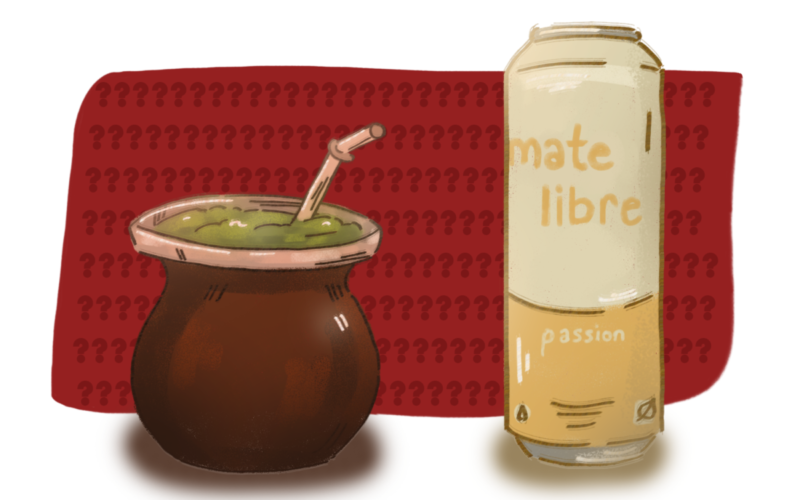The rise of a new kind of energy drink raises serious issues
We’ve all seen them around. Whether in the hands of hipsters, on the shelves of your local store or thrown away carelessly on the street, Yerba Mate energy drinks (pronounced yer-ba ma-té) have become a classic drink for those looking for a healthier alternative to traditional energy drinks. Students love to drink them as a quick pick-me-up to meet the busy demands of university life.
But where do these drinks come from? It might seem trivial to talk about a canned energy drink, but behind the fancy label listing health benefits and glitzy marketing on Instagram lies a story of racial appropriation, and greed.
Made from the leaves of ilex paraguariensis, a tree native to the subtropical forests of South America, Yerba Mate is a drink enjoyed by millions of people across Latin America. In some countries, such as Argentina and Paraguay, it is a common part of daily life and is deeply rooted in the local culture and identity.
The drink also holds a central place in the culture of the Guaraní, an Indigenous population located in the previously mentioned countries. Since long before the arrival of Spanish colonization, Yerba Mate has been central to their worldview, where it plays a core role in religious practices and creation stories.
Unlike the canned versions sold in Canada and the US, in South America, Yerba Mate is always drunk as an infusion, with hot water poured into a cup containing loose mate leaves. The resulting mixture is sipped through a straw with a special strainer called a “bombilla.”
Unfortunately, the arrival of this intrinsically South American product in Canadian stores has not promoted better understanding and knowledge of this continent and its people. Instead, it is yet another example of its exploitation by foreigners.
Long the victim of domination and colonization by outside powers, today Latin America continues to suffer from high rates of inequality, poverty, and corruption, all while huge sections of the economy remain in the hands of Western companies, including many based in Canada. Many of these businesses have enriched themselves by exploiting weak states and cheap labour to extract ever more resources, material, and profit from the continent while giving very little back.
While perhaps a less extreme example of this issue, the US and Canadian companies creating Yerba Mate energy drinks for the North American market are still a part of this trend.
The cultivation of Yerba Mate, which takes place largely in Argentina, Paraguay and Brazil, is mostly carried out by poorer Indigenous people and is notorious for its abuses. In response, some North American brands are keen to highlight their sustainable practices and fair treatment of workers. Guayakí, a California-based brand of Yerba Mate energy drink, proudly claims on their website to support smallholders and Indigenous producers. They also state that “every purchase of Guayakí makes a positive global impact,” which they even trademarked as “Market Driven Regeneration™.”
However, as pointed out by researcher Ana Fochesatto in her thesis “Yerba Mate: National Project to Emerging Superfood“, all this does is recreate the Spanish colonial system of encomiendas where in return for protection, Indigenous peoples were forced to cultivate the plant as tribute to European masters. Only this time, the tribute is to a North American corporation that, according to their latest filings, raised $75 million from investors.
Furthermore, the marketing behind many of the major brands promotes a fetishised view of South America as a land of faraway jungles and primitive natives. Mate libre, a Yerba Mate energy drink from Quebec, describes mate as “the super-natural energy of South American rainforests.” Mateína, another Québec-based brand, states on its website that the local Indigenous population considered mate a “gift from the gods” that “gave them strength and courage.”
While advertised as the sustainable, healthy and ethical choice for conscious consumers, in reality Yerba Mate energy drinks are the result of Western companies profiting off the appropriation of an intrinsically Latin American product, marketing that reduces the continent to an exoticised object and dubious promises of market-driven solutions to societal inequalities. There is nothing wrong with enjoying these products, but as consumers, we ought to stop buying into their shallow marketing.




